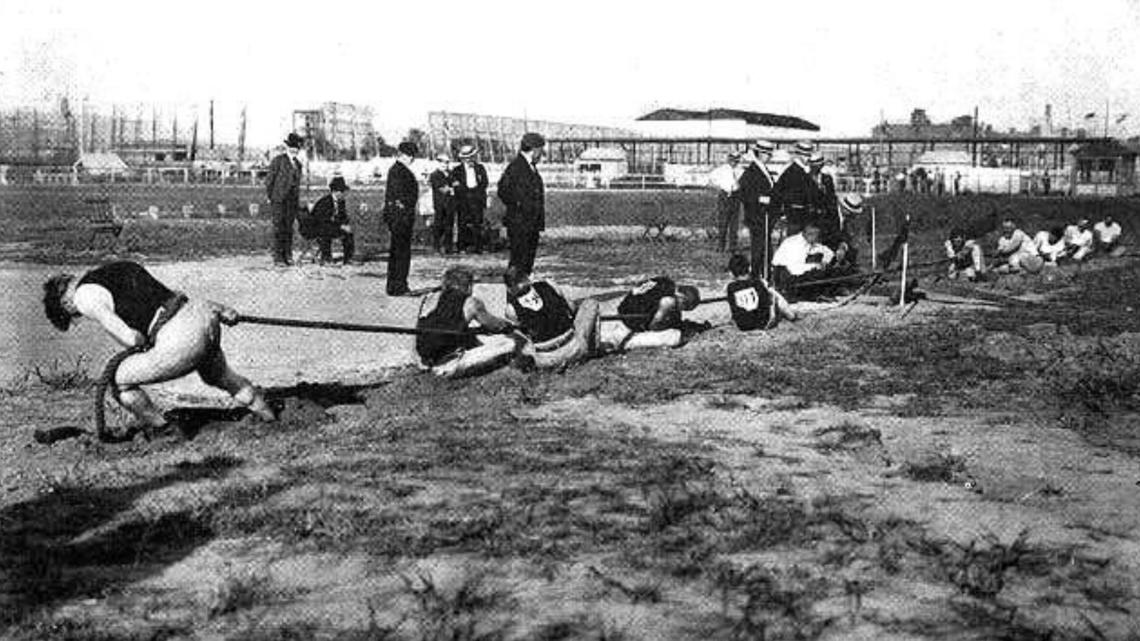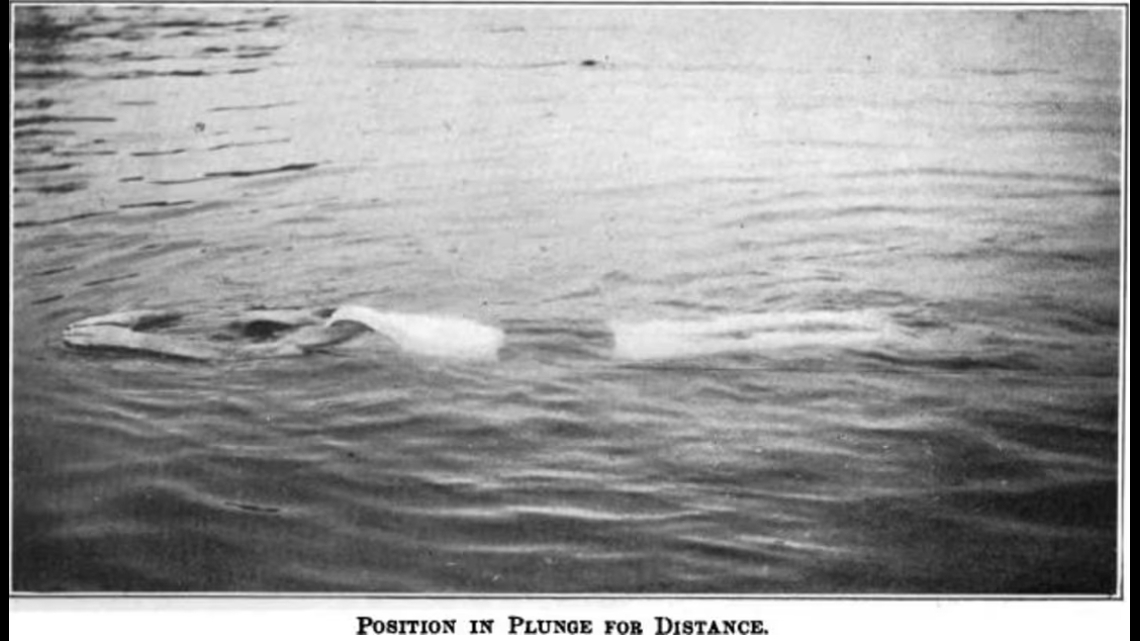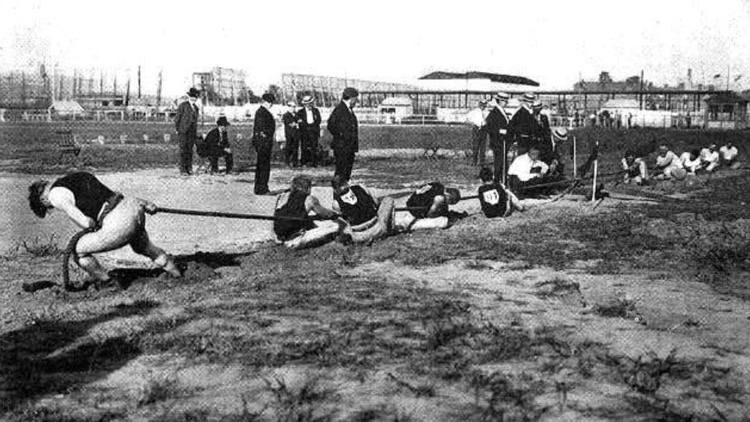TOLEDO, Ohio — The 2024 Olympic Games are well underway in Paris, with athletes participating in 32 different sports. These range from fan favorites, like gymnastics and swimming, to the more obscure (but definitely worth watching), like skateboarding and sport climbing.
In the 128 years since 1896, 30 Summer Olympics Games have been held, but the roster of sports is rarely the same from game to game; that is, not every sport makes the cut, and are sometimes discontinued altogether. Here are some of the more unheard of sports of Olympic Games past.
Tug of War
According to the official site of the Olympics, Tug of War was an Olympic discipline in all summer games between 1900 and 1920. While it's no longer included in Olympic Games, it still has devoted fans around the world. Many make petitions to see its Olympic return.


Distance plunging
Perhaps the strangest sport on this list, plunging for distance involved diving into the water, then covering as much distance as possible without moving your body in any capacity for 60 seconds. According to the Olympics, this sport was featured only at the 1904 St. Louis Olympics before its rapid decline, and crowned American athlete William Paul Dickey as gold medalist with a distance of 62 feet and six inches.
Here's how to pull off the act, according to this demonstration of the event:


RELATED: Americans have more depth than anyone at the pool, but gold medals harder and harder to come by
High jump and long jump - on a horse
Equestrian events are a staple at the Olympic Games, but the 1900 Paris Games came with a unique equine twist. According to the Olympics site, show jumping was accompanied by a task usually reserved for Athletics (commonly known as Track & Field).
Participants on horseback competed in long jump and high jump. A Belgian army officer secured gold by clearing a distance of 6.1 meters, or just over 20 feet. Still, it comes up 9 feet short compared to long jumper Mike Powell, who jumped 29 feet, 4 1/2 inches in 1991. Powell's record still stands today.
High jumping horses Canella and Oreste (and their riders, of course!) shared gold medals after clearing a 1.85 meter jump, just over 6 feet high.
Basque Pelota
This sport may be on the obscure side, but its high-speed play and unique equipment render it an enjoyable watch. According to the Olympics site, Bascque Pelota was played only in the 1900 Olympics and then brought back as a demonstration sport (more on those later) in Paris in 1924, Mexico in 1968 and Barcelona in 1992.
The game is played with a large, banana-shaped basket attached to the hand, which slings the ball against a wall much like handball. The player catches the ball using the same mechanic.
You can watch a video of it on the Olympics site here .
Demonstration and Unofficial Sports
Some of the more niche Olympic sports you may (or may not) have heard of are demonstration sports: sports not played for in competition for a medal, but rather to promote it on a global stage.
Sometimes, demonstration sports illustrated to world the traditional sports of the host country. For example, glima, or traditional Icelandic wrestling, was included as a demonstration sport in the 1912 Stockholm Olympics.
American football (not to be confused with football, or soccer, elsewhere in the world) was featured as a demonstration sport in 1904 and 1932 at the St. Louis and Los Angeles Olympic Games, respectively.
Many Olympic sports come with risk of injury, and that certainly included the 1908 Games, which featured pistol dueling as a demonstration sport, according to historian Jonathan Gottschall in his book The Professor in the Cage. Wax bullets were used, and athletes were covered head to toe in protective gear, including heavy overcoats and face masks.
The 1900 Paris Olympics lasted five entire months and featured a large number of what are described as unofficial events. These were included because the Games were held in conjunction with the Paris International Exposition, a large world fair, according to Olympics scholars Bill Mallon and Jeroen Heijmans. Between historians Mallon (The 1900 Olympic Games) and John Apostal Lucas (The Modern Olympic Games), this included the following events:
- Ballooning: How far or high one could travel in a gas balloon
- Automobile and motorcycle racing
- Life saving: How well a fire fighting team could perform their drills and maneuvers. Kansas City's fire department won.
- Cannon-shooting
- Lawn bowling
- Angling
New sports
As for the future of the Olympic Games, we will get to see some new sports introduced in 2028 when Los Angeles hosts the Games. According to the Olympics site, these additions will include baseball-softball, cricket, flag football, lacrosse and squash.
Baseball-softball would make its first return since 2008 (besides an appearance in Tokyo 2020), while lacrosse and cricket would have a return over a century in the making: cricket appeared only in the 1900 Paris games, and lacrosse was played in 1904 and 1908, but hasn't been seen since.
Squash and flag football, meanwhile, would be making their Olympic debut.


